- How Gambling Affects Your Mortgage Application
- What Factors Do Lenders Consider?
- Can Professional Gamblers Get a Mortgage?
- How To Get a Mortgage As A Professional Gambler?
- Can Certain Forms of Gambling Affect My Chances More?
- Mortgage Refused Due to Gambling? Here is What To Do
- Need Help with Gambling Addiction?
- The Bottom Line
Does Gambling or Betting Affect Your Mortgage Application?

Dreaming of owning a home?
While responsible gambling shouldn’t be an obstacle, understanding how lenders view it can offer peace of mind. After all, they want to ensure you can comfortably repay your mortgage.
This guide explores what factors lenders consider and tips to help you make an informed decision in your mortgage application.
How Gambling Affects Your Mortgage Application
When considering your mortgage application, lenders like to get a clear picture of your financial situation.
This includes taking a peek at your bank statements, where they might notice any gambling transactions.
Here’s what could raise a red flag:
- Big spending. If you’re spending a lot more money on gambling than you can comfortably afford, it might worry lenders. Remember, they want to be sure you can keep up with your mortgage payments.
- Lots of bets. Betting frequently, even if the amounts are small, could show lenders you have a gambling habit that might impact your financial stability.
- Gambling debts. If you have any debts related to gambling, like loans or unpaid credit card bills, it could be a concern for lenders. It shows them you might struggle to manage your finances responsibly.
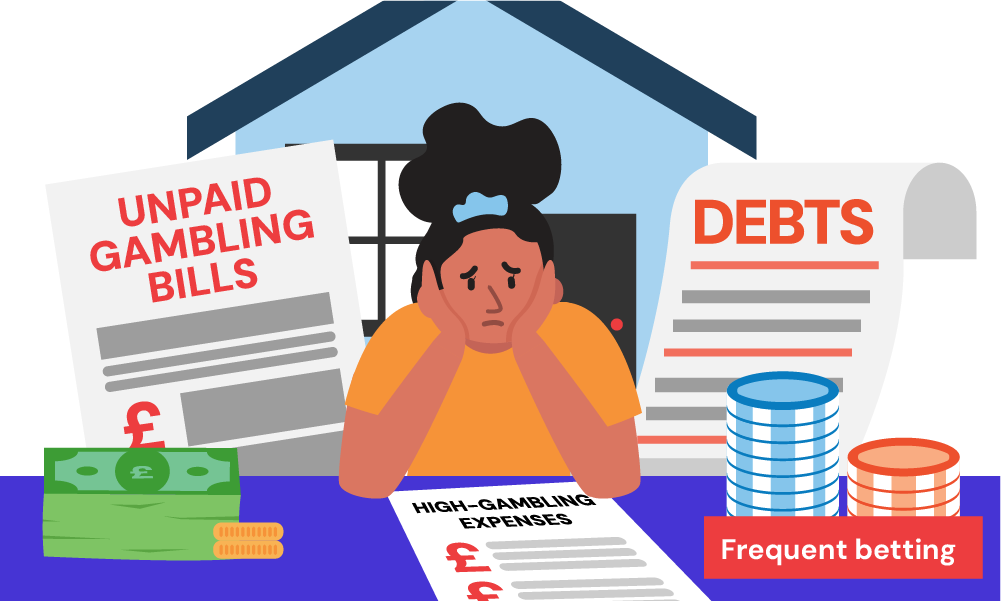
What Factors Do Lenders Consider?
Lenders consider several things when assessing your mortgage application, including your gambling habits.
Here’s what they look at:
- Your gambling costs relative to your income and budget. Mortgage payments mustn’t compromise your ability to afford basic needs.
- The frequency of your gambling, as regular gambling could suggest financial instability.
- The nature of your gambling activities, with distinctions made between occasional lottery participation and frequent, high-stakes casino gambling.
- Any outstanding gambling-related debts can indicate poor financial management.
- Your overall financial situation, including income, savings, other debts, and credit history, to gauge your financial health.
Remember, responsible gambling shouldn’t automatically disqualify you from getting a mortgage.
Can Professional Gamblers Get a Mortgage?
It’s possible, but not without challenges.
Here’s the reality:
Traditional lenders are typically cautious towards professional gamblers due to the perceived risk and instability of income.
Frequent transactions, even if profitable overall, can raise concerns about financial management.
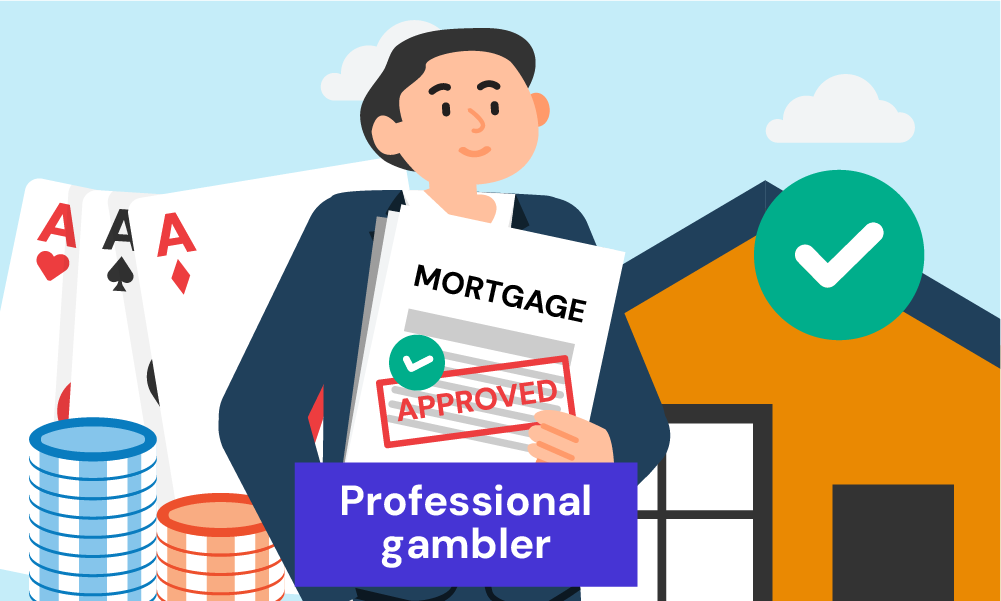
How To Get a Mortgage As A Professional Gambler?
To get a mortgage as a professional gambler, here are some key tips:
Step 1 – Know the Game
Lenders view gambling income as risky, so expect extra hurdles. They’ll assess:
- Income stability – Forget about unpredictable wins and losses. Consistent earnings, demonstrably earned through your gambling career, are crucial.
- Track record – A long-term history of making a full-time income from gambling strengthens your case.
- Type of gambling – Activities involving skills like Blackjack, Baccarat, or horse racing (if you’re an owner/trainer or regular backer) are often viewed more favourably than luck-based games like the lottery.
- Gambling income ratio. This compares your typical betting stake to your bank balance. Regularly placing large bets while having substantial savings shows responsible management.
- Financial responsibility – Show you’re a pro at managing money. Minimal debt, a solid budget, and responsible spending habits go a long way.
- Tax compliance – Be meticulous. Ensure you’ve declared and paid all taxes on your gambling income. Don’t leave any room for doubt.
Beyond gambling, you’ll also need to meet general creditworthiness criteria:
- Solid credit score – A good credit history demonstrates your ability to manage debt responsibly.
- Minimal debt – High debt raises red flags. Aim for manageable levels.
- Employment history – While not employed traditionally, demonstrating stable income through gambling can suffice.
Step 2 – Gather Your Evidence
This is your ace in the hole. Get detailed records:
- Tax returns – Years of them, showing consistent and stable income.
- Financial statements – Prove responsible financial management (savings, investments, low debt).
- Third-party verification – Consider independent verification of your earnings, if possible.
Step 3 – Find Your Champion
Not all lenders are created equal.
Seek a specialised mortgage broker who understands professional gamblers and has connections to lenders open to your income source. They’ll be your guide and advocate.
Step 4 – Prepare for Bigger Bets
Larger deposits are often required to offset the perceived risk. Be prepared to put down more upfront.
Step 5 – Brace for Higher Rates
The “gambling income” label might translate to higher interest rates. Be prepared to negotiate and shop around for the best deal.
Remember, transparency is key. Be upfront and honest about your income source and financial situation. This process might take longer than usual. Don’t get discouraged!
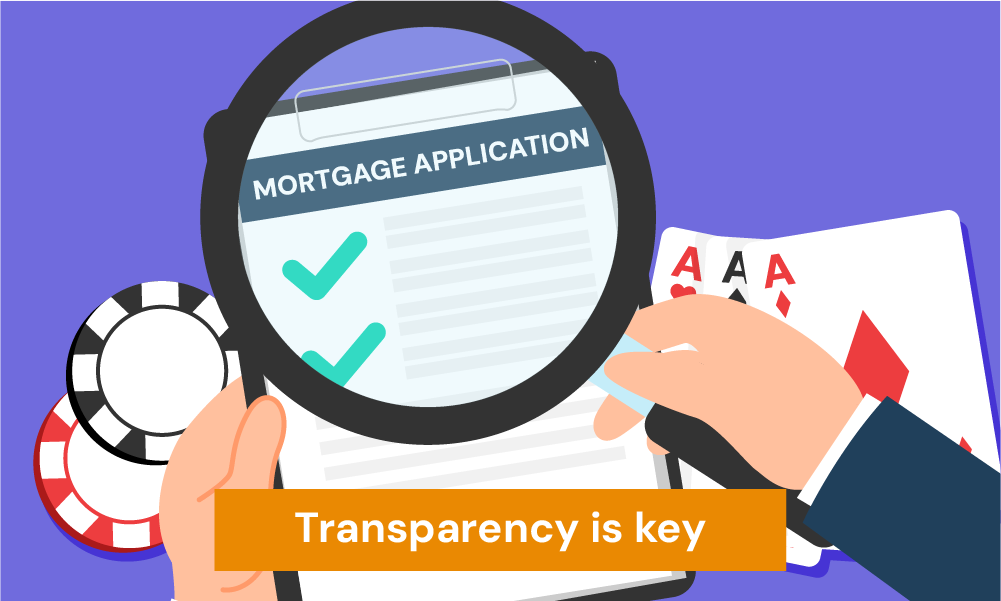
Can Certain Forms of Gambling Affect My Chances More?
Yes, it can.
Occasional bets aren’t likely to be a deal breaker, but frequent gambling or large sums can impact your mortgage application. Why?
Lenders care about your spending habits, especially recurring ones. Regular bets, even small amounts, can suggest a larger habit.
They want to see your income comfortably cover essential expenses, leaving gambling as occasional fun, not a major cost burden.
Here’s what they consider gambling:
- Casino games and online slots
- Online betting sites
- Bookmakers
- Lotteries
- Bingo
- Scratchcards
Remember, most lenders treat all legal gambling similarly if it’s frequent or affects your disposable income significantly. However, the exact threshold varies depending on your circumstances.
While this information is helpful, each lender has its criteria.
The best way to know if your gambling habits might affect your application is to talk to a mortgage broker.
They can guide you based on your specific situation and help you find lenders who are comfortable with your financial profile.

Mortgage Refused Due to Gambling? Here is What To Do
Getting turned down for a mortgage because of gambling can be tough.
Lenders worry about frequent bets, big losses, or heavy spending that might affect your finances.
But, don’t give up!
Here’s how to bounce back:
- Don’t let this setback stop you. Getting a mortgage is still possible. With the right support and a commitment to responsible finances, you can achieve your homeownership goals.
- Hold off on immediate rejections. Applying again without a plan can hurt your credit score. Take a breath and seek professional help.
- Remember, options exist. While some lenders might say no, others are more flexible. With the right guidance, you can find a mortgage that matches your needs.
- Focus on responsible habits: Show lenders you’re managing your finances wisely and responsibly. Transparency is key!
- Get expert guidance. A mortgage broker specialising in helping people with a gambling history can be a game-changer. They know which lenders are more flexible and can guide you through the process smoothly.
To get started, simply send us an inquiry. We’ll connect you with a mortgage broker who understands gambling and knows lenders open to your situation.
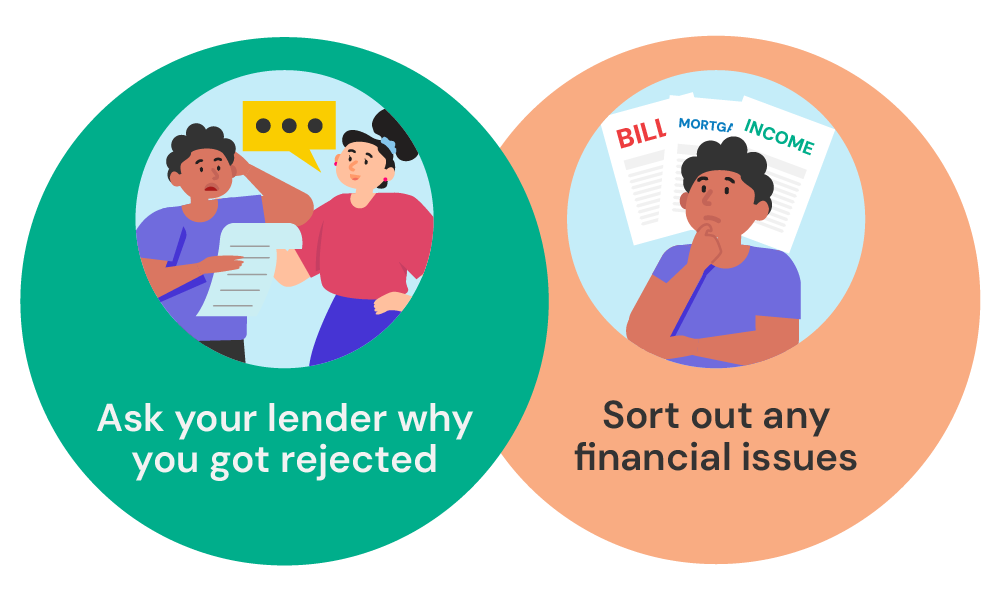
Need Help with Gambling Addiction?
It’s important to acknowledge that gambling can sometimes become problematic.
If you or someone you know is struggling with gambling addiction, please know that resources are available:
- National Gambling Helpline (UK) (run by GamCare): 0808 8020 133 or gamcare.org.uk
- Through NHS
Remember, seeking help is a sign of strength, not weakness. These resources offer confidential support and guidance to overcome gambling addiction and build a healthier financial future.
By combining responsible gambling habits with transparency and awareness of potential challenges, you can navigate the mortgage process with confidence and achieve your dream home!
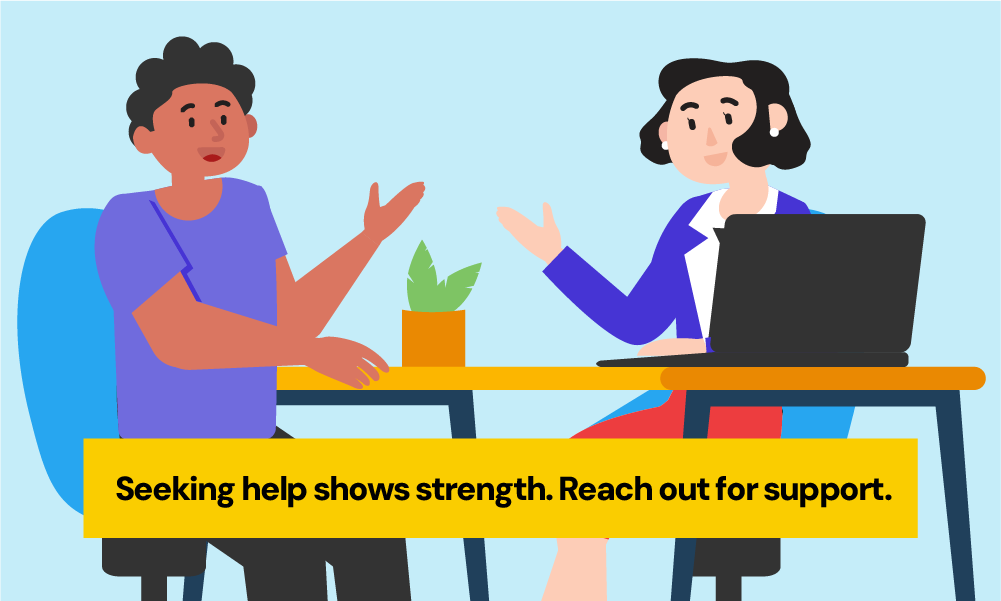
The Bottom Line
In a nutshell, responsible gambling habits shouldn’t affect your mortgage application. Be upfront about your gambling and show responsible spending to avoid any issues.
If you’ve faced gambling problems, seeking help demonstrates your commitment to financial well-being, which lenders appreciate.
Considering a mortgage broker can simplify the process, especially if you have concerns about your gambling history. They offer personalised advice and guide you every step of the way.
Ready to move forward? Get in touch with us. We can connect you with a trusted broker who can help you achieve your dream home.
Get Matched With Your Dream Mortgage Advisor...

Frequently asked questions
Does gambling affect my credit score?
No, gambling itself doesn’t directly impact your credit score.
Credit scores are based on your history of borrowing and repaying debt responsibly, not your spending habits. This means playing the lottery, visiting the casino, or placing online bets won’t automatically lower your credit score.
However, there are indirect ways gambling can affect your credit score, such as missed payments, debt accumulation, and frequent gambling transitions on your bank statements.
Will a small lottery ticket purchase affect my application?
Generally, no. Occasional small bets are unlikely to raise concerns as long as your overall finances are stable.
Does frequency matter more than the amount?
Both are considered. Frequent gambling, even with small amounts, might suggest a bigger habit. But responsible, budgeted gambling, even more frequently, might be viewed differently.
Will lenders see online gambling?
Yes, online transactions often appear on bank statements.
Typically, lenders will ask for the last 3 months of your bank statements as part of the process.
Lenders will analyse your bank statements for transactions related to gambling companies.
This includes online gambling platforms, casinos, bookmakers, and lottery services. Frequent or high-value transactions in these categories might require explanation.
Why might lenders dislike gambling transactions?
First, lenders view gambling with caution because it can be unpredictable and risky. Imagine if you lose big and can’t repay your loan. Not ideal!
Second, it sometimes goes hand-in-hand with other red flags like frequent address changes or payday loans. This raises concerns about your financial stability and responsibility.
Finally, stricter affordability checks since the Mortgage Market Review mean lenders scrutinise bank statements more closely. Regular gambling transactions might raise questions and require explanation.
This article has been fact checked
This article was created, checked, and verified by the expert team at Money Saving Guru. Trust us, you’re in good hands.




